#is a vegan diet good for diabetics
Explore tagged Tumblr posts
Text
Vegan Diet for Diabetes Management: 5 Superfoods to Add to Your List

We all know how following a proper vegetarian diet is the key to keeping your blood sugar stable. Fluctuating blood sugar can give rise to various unwanted health problems. So, if you’re diabetic, you must supplement your regular meals with plant-based food. Instead of meat, you should focus more on the consumption of fiber-rich veggies and fruits. Keep reading to discover which are the 5 low-carb superfoods you need to include in your vegan diet. Connect with a reliable diabetes ayurvedic cure online retail shop to find out what type of vegetarian diet for diabetes you should go for.
Spinach
Leafy greens that are rich in healthy fibers not only fill your tummy but also assist in restricting changes in your blood sugar levels. Did you know that the glycemic index of spinach is 15? Also, the low-calorie content in spinach makes it a suitable option to manage your weight, which is essential for diabetes management.
Sweet potato
Being full of carbohydrates, potatoes are a no-no for diabetic patients. But you can always opt for pink sweet potatoes or shakarkandi that are packed with good carbs that do not metabolise quickly and maintain steady sugar levels. Having glycemic index that’s less than 55, sweet potatoes are a tasty and healthy food to include in your meals in moderate proportion.
Bitter gourd
Not that fond of the bitter taste of this vegetable? Well, keeping that aside, there’s no doubt that bitter gourd is a must-have vegetable in a good diabetes diet. The anti-diabetic properties as well as insulin-resembling compounds present in karela make it the healthiest superfood for improving your system’s insulin activity.
Orange
As per the American Diabetes Association, citrus fruits have been found to be exceptionally effective in managing blood sugar levels. Oranges have large amounts of fibers too. These fibers inside this delicious fruit don’t breakdown quickly and stay in your body for a long period, incorporating eventual release of sugar. Have whole orange instead of orange juice as the former is richer in fiber content.
Chia seeds
Full of antioxidants and packed with anti-inflammatory properties, these super seeds contain loads of fiber, iron, zinc, calcium and magnesium. Chia seeds are a fantastic choice for diabetics to regulate blood sugar and prevent diabetes-related illnesses. You can soak them in water or sprinkle them over your cereals, salads or smoothies to enjoy a wholesome plant-based diet.
Visit a high-starred ayurvedic cure for diabetes e-store to find out about a standard healthy vegan diet for diabetes so that you can follow it judiciously.
#Vegan Diet for Diabetes Management#what vegan foods are good for diabetics#vegan diet for diabetes cure#how does a vegan diet affect diabetes#vegan diet for diabetes and weight loss#veg diet plan for diabetic patient#veg diet for diabetes patients#vegetarian diet for diabetic patients#vegan diet plan for type 2 diabetes#best vegan diet for type 2 diabetes#is a vegan diet good for diabetics#vegan diet good for diabetes#vegan diet help diabetes#is vegan diet healthy for diabetics#vegetarian food for diabetic patients in india
0 notes
Text
I'm vegetarian, planning on going vegan when I can afford it, so I know how annoying it is when people try to "ERMM BUT ACKSHUALLY-" about your diet (which isn't anyone else's business) and ethical choices, but beekeeping really is important yall. I promise the bees are OK. We need healthy pollinators now more than ever in the face of mass pesticide use and climate change, and beekeepers are helping. Maybe if you're worried about the environment buy it in glass jars if you can though (less plastic waste + honey is like indefinitely shelf stable which is honestly kind of amazing but plastic isn't and can leech into the honey after a while, so if you want it to last longer, glass is the way to go) but supporting local beekeepers is actually very important to the lives of pollinators (not just honeybees! The flowers that are important to beekeepers are also important to other species of bees and other pollinators like butterflies and wasps!) and we should keep that in mind.
vegans make peace with honey
no shut up do it
#fuck the people who are like “UHMM YOU EAT SOY AND SOY IS BAD FOR THE PLANET SO U SHULD GIVE UP AND EAT STEAK” tho. hey. hey guess what.#guess what most soy is produced for. hey. hey did you ever think that maybe. maybe it's for livestock#ppl are so needlessly contrarian abt this shit sometimes#at least we're TRYING to do something good in a capitalist hellscape even if some people are misinformed in doing so.#a lot of the issues with veganism aren't really inherent to veganism but the way it intersects with diet culture and alternative medicine#they're not buying quinoa and agave because it's vegan they're doing it because someone on youtube told them it would make them skinny#or cure their chronic illnesses or whatever#if they wanted a sweetener sugar is like right there. if they wanted grains rice is right there. but those are too normal and thus bad#and you should buy my book for 49.99 aboyt the magical whimsical healing nurturing properties of this specific indigenous plant that you can#buy from my shop for $150. it'll definitely cure your diabetes mhm trust me :) give me your money :) :)#fucking hate diet culture#tangent over. im gonna go have a picnic w my sister now#we're going to the lake it'll be lovely
355K notes
·
View notes
Note
hi hi mara, i remember you writing in a post that you look forward to meal times. what are your favorite foods at these times?
good morning anonymous; i try to eat exactly four meals that are always the same "thing," because i:m particular about texture/temperature and routine;
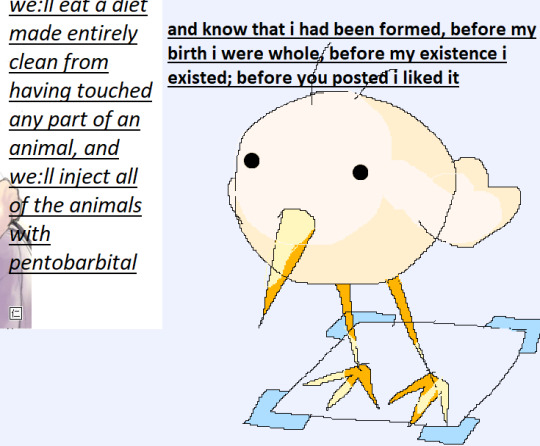
breakfast is always a cold almond yogurt (+ some protein powder) & some kind of low-carb sugar-free crunchy cereal (as a general guideline for most-of my food/diet, my mom drilled in-to me from a young age neurosis about carbs/sugar from her diabetes/liver-failure so i ended up inheriting much of this diet-neurosis); i try to portion out all of the ratios to be ~4; ie: 3 spoonfuls of yogurt, 1 part of cereal; if there is anything mixed in-to the yogurt, i try to use three things combined with the yogurts 1 so it comes out to four (today i made peppermint yogurt + a dark chocolate cereal that was bogo @ publix last week);
lunch is always a wrap, that i burn on the stove, and then burn the assembled wrap in an air-fryer so it is 1) scalding, 2) completely dry and crunchy; the filling is usually ~4 pieces of some protein (ex: 2 pieces of cauliflower chicken stuff that is then further divided so it comes out to some number-of-4; 4 cubes of tofu that are further divided down into 16 equal pieces; a fourth of an avocado that is quartered down into four slices), + some vegetable filler (usually spinach or broccoli or kale; sometimes onions i pickle or roma tomatoes i cube), + some jalapeno (with two cross-section cuts and then chopped into ~16 slices so it quarters), + some type of sauce i usually make (my favorite is this birria-consomme-esque sauce i make every few months out of tons of dried chilis, which basically prevents it from spoiling); when it:s been cold, i:ve been making this awful vegan gravy out of buckwheat flour + fake chicken bouillion stock (in place of drippings); sometimes i use egg because i had an incident last month that made me realize my diet was killing me <- though this might:ve just been more neurosis;
dinner is either half a protein bar or a stir-fry (bean sprouts, broccoli, red peppers, tofu);
then dessert i have half of a protein bar that i burn in airfryer;
i don:t really like eating anything that doesn:t match these texture/temperature profiles; ie: baked oats are always disappointing because they:re not cold/crunchy; cold wraps (which sometimes i think i want because i like cold-sauces (like mayo or w/e) and the way i cook things basically turns them into soup) are always massive disappointments; beautifully made and composed foods from restaurants are always disappointing because they:re not as scalding as i like, or spicy as i like; etcetera;
take care, anonymous
19 notes
·
View notes
Text
The Power of Plant-Based: A Guide to Veganism
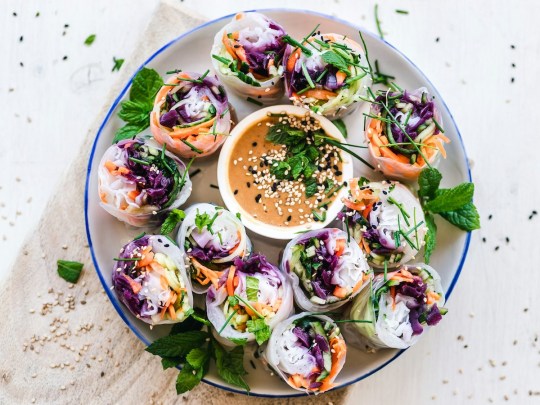
Veganism has gained significant traction in recent years, and for good reason. It's not just a passing trend; it's a movement that aligns with our desire for a healthier, more sustainable planet. By adopting a plant-based lifestyle, individuals contribute to their own well-being while making a positive impact on the world around them. The power of plant-based living is becoming increasingly evident as veganism is not just a dietary choice, it's a lifestyle that encompasses compassion, health, and environmental consciousness. Discover the principles of veganism, the health benefits of a plant-based diet, its environmental impact, ethical considerations, tips for transitioning to a vegan lifestyle, and addressing common concerns.
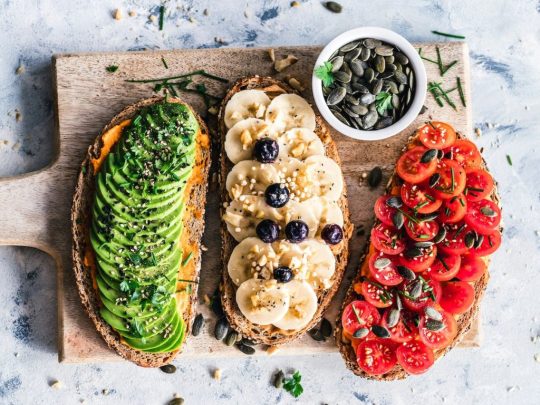
What is Veganism? At its core, veganism is a philosophy that seeks to exclude all forms of animal exploitation and cruelty, whether in diet, clothing, or any other aspect of life. It's an ethical stance that promotes compassion towards all sentient beings and recognizes the interconnectedness of humans, animals, and the environment. Health Benefits of a Plant-Based Diet Embracing a plant-based diet can have profound effects on our well-being, and there are significant health benefits: Nutritional Advantages: Plant-based diets are rich in vitamins, minerals, and fiber, providing essential nutrients for optimal health. Disease Prevention: Studies have shown that plant-based diets can reduce the risk of chronic diseases such as heart disease, diabetes, and certain types of cancer. Weight Management: A plant-based diet, when balanced and varied, can support healthy weight loss and weight management.
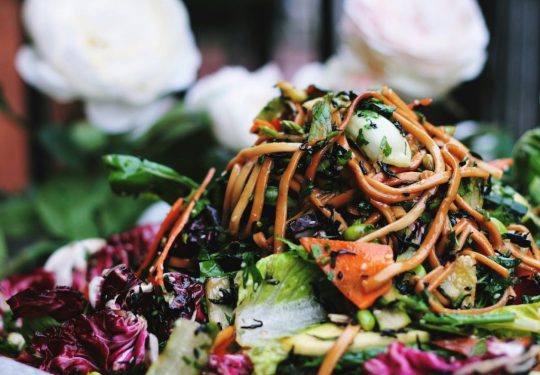
Environmental Impact of Veganism The environmental consequences of animal agriculture are staggering. By adopting a vegan lifestyle, we can significantly reduce our ecological footprint. Reduction of Greenhouse Gas Emissions: Animal agriculture is a major contributor to greenhouse gas emissions. By eliminating animal products from our diet, we can reduce our carbon footprint. Conservation of Resources: Animal agriculture requires vast amounts of land, water, and feed. Shifting to plant-based alternatives allows for more efficient use of resources. Preservation of Wildlife: Animal agriculture is a leading cause of deforestation and habitat destruction. Choosing plant-based options helps protect biodiversity and wildlife habitats. Ethical Considerations Ethics is at the core of veganism. By adopting a vegan lifestyle, we actively express our compassion for animals and advocate for their rights. Veganism encourages the use of cruelty-free alternatives and challenges societal norms regarding the treatment of animals. Tips for Transitioning to a Vegan Lifestyle Transitioning to a vegan lifestyle can be a gradual process. Here are some tips to help you navigate the journey: Gradual Changes and Substitutions: Start by incorporating more plant-based foods into your diet and gradually eliminate animal products. Meal Planning and Grocery Shopping: Plan your meals in advance and explore the abundance of vegan options available. Stock your pantry with wholesome plant-based ingredients. Seek Support and Community: Connect with like-minded individuals, join vegan groups, and seek support from friends and family who understand and respect your choices. Addressing Common Concerns Transitioning to a vegan lifestyle often comes with questions and concerns. Let's address some common ones: Protein Intake: Plant-based diets can provide ample protein through sources such as legumes, tofu, tempeh, and quinoa. Nutrient Deficiencies: With proper planning and a varied diet, vegans can meet their nutritional needs. Pay attention to sources of vitamins B12, iron, and omega-3 fatty acids. Social Challenges: Dining out or attending social events as a vegan may require some adjustments. Communicate your dietary preferences in advance, and be prepared with vegan-friendly alternatives.
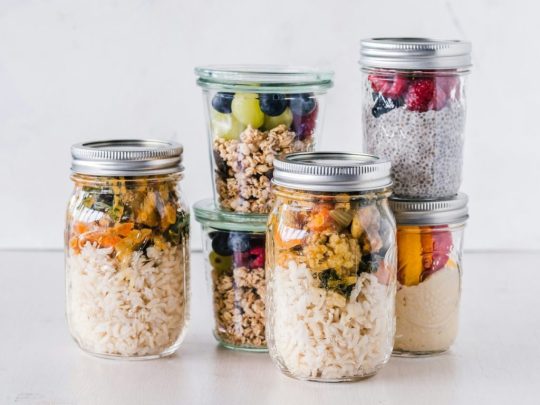
Vegan Recipe Suggestions Here are a few easy to prepare and delicious vegan recipe suggestions to try: Vegan Buddha Bowl: A colorful and nourishing bowl packed with a variety of vegetables, whole grains, and plant proteins. Black Bean Tacos: Flavorful and satisfying, these tacos showcase how classic dishes can be made vegan without sacrificing taste. Overnight Oats: A simple and nutritious breakfast option that can be customized with your favorite toppings and flavors. Lentil Bolognese: A hearty and comforting meal that highlights the protein potential in vegan foods. Additional Resources For further exploration of veganism and its benefits, here are some recommended resources: "How Not to Die" by Dr. Michael Greger: A comprehensive book that extensively covers the health benefits of a plant-based diet. "Forks Over Knives" documentary: A compelling film that explores the correlation between diet and disease, highlighting the power of plant-based nutrition. The Vegan Society website: A comprehensive online resource for anyone interested in veganism. It offers a range of information from basic principles to practical advice, recipes, and more. "Earthlings" documentary: A thought-provoking film that sheds light on the ethics of animal use in various industries, encouraging viewers to reevaluate their choices. Transitioning to a vegan lifestyle is not just a personal choice but it should be a conscious decision to make a positive impact on your health, the environment, and to do your part in protecting animal welfare. Start living a plant-based lifestyle and contribute to a more sustainable and compassionate world today. Every step you take on this journey matters. Embrace the power of plants, explore new flavors, and savor the incredible benefits that veganism brings to your life. Read the full article
12 notes
·
View notes
Text
The process of Going Vegan
Going vegan is a lifestyle that can improve your health, the environment, and the welfare of many living beings. Here are some tips to help you understand the process and make it easier.
What is veganism?
Veganism is more than a diet; it is a lifestyle that excludes all animal products, such as meat, dairy products, eggs, and others. Stopping the use of products that come from animals, such as leather, is also part of the process. The reason for choosing this lifestyle varies from person to person, but most agree on ethical concerns, the treatment of animals and the environment. The vegan diet is often confused with vegetarianism. Vegetarians do not consume any meat, but their diet may include animal products. Some consume dairy products, while others may include eggs in their diet. Veganism may seem stricter because it goes beyond food.
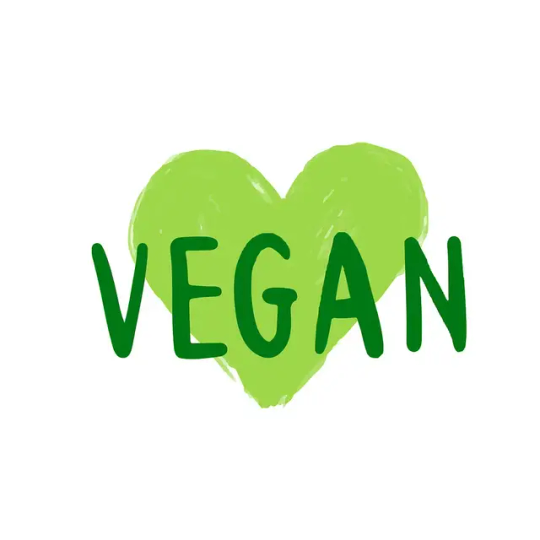
Regain your health
One of the biggest motivations for many people is to regain their health and feel good. A well-planned vegan diet can reduce the risk of disease and give you the vitamins and minerals you may need. These diseases include diabetes and even cancer. A recent study compared the effects of a low-fat vegan diet to a conventional portion-controlled diet in individuals with type 1 diabetes (T1D). Participants on the vegan diet experienced improvements in glycemic control and had lower levels of cholesterol. Additionally, body weight decreased in the vegan group. (Talwadekar, 2024)
Think of the environment
Not eating meat also benefits the environment in an impactful way. Animal agriculture is one of the biggest causes of greenhouse gas emissions and water pollution. An article by Gale Environmental Studies Online Collection states that livestock require many more resources to raise than plants do, many people believe that a diet consisting of plants is the best solution for a world with a rapidly growing human population. Compared to growing potatoes or rice, producing beef requires 160 times more land per calorie, and produces 11 times more greenhouse gases. (Blackwell, 2021)

4 Tips for transitioning to a vegan diet: You must begin this change little by little. The changes do not have to be drastic at first. Start adding more plant-based products and at the same time reduce your meat consumption.
1. Seek information: Before making changes to the way you eat you should educate yourself about this diet. It is important to know what foods can provide you with certain nutrients. Reading labels when shopping is very crucial in the transition to a vegan diet. There are products that contain ingredients of animal origin that at first glance are not obvious. Also, reading labels helps us learn about the nutritional value in each product we eat. In addition, we get ideas about calorie content, fiber content and can monitor sugar and sodium levels.
2. Look for substitutes: There are many plant-based alternatives available today. The vegan industry has grown a lot in the last few years making the transition easier for those looking for vegan alternatives for their diet. Eating outside the home can make the process a bit more difficult. Before going out, look for restaurants that offer a menu that includes vegan alternatives.
3. Create a plan: Making a weekly plan may make the process easier and can ensure that you get the nutrients you need. You can use recipe books, and you can get many good recipes on the internet. Do not be afraid to be creative and try new combinations you have never eaten before. To make sure you get the nutrients you need, try to eat a variety of foods, and take supplements. Protein, iron, and b12 deficiencies are some of the concerns of people making this change.
4. Be patient: It is normal to make mistakes or be tempted in the process. It may take time to make the adjustment. It is normal to have cravings, especially at the beginning stage. Look for substitutes for your favorite foods. Use a variety of seasoning to enhance you cooking and take it to the next level.
Deciding to enter this change is a very personal decision that requires preparation and education. You must learn about the benefits it could bring to you and the environment. Health benefits and satisfaction are a step towards bringing change to the world.
Works cited:
Talwadekar, Manasi. “Low-Fat Vegan Diet May Improve Cardiometabolic Health in T1D.” Internal Medicine News, Apr. 2024, p. N.PAG. EBSCOhost, research.ebsco.com/linkprocessor/plink?id=e6b8ab96-9ea3-3f2b-8623-90a64371220a.
Blackwell, Amy Hackney. "Veganism." Gale Environmental Studies Online Collection, Gale, 2021. Gale In Context: Environmental Studies, link.gale.com/apps/doc/NFVPGH435019656/GRNR?u=lincclin_pcc&sid=bookmark-GRNR&xid=67c44948. Accessed 15 Jan. 2025.
4 notes
·
View notes
Note
I have weird feelings about my sister. We have a close relationship, but she is 100% the golden child while I was just not as good ig.
Like, no one has said it, but I just can't help comparing myself to her. She's very good at being a person - she's very self disciplined so school was easy (or easier) for her, has at least an okay time at making friends (I thought she was 99.9% good at it but ig we both have social issues) and she's very kind and nice to people.
Whenever I compare myself to her (which is a lot admittedly) I'm always lacking. Even tho I was a "gifted kid" and did surprisingly well in school, it wasn't easy for me - turns out I have ADHD (no surprise there), a speech impediment, and maybe ASD, so both the academic and social side of school sucked. I didn't get bullied (thank God) but I didn't have any friends and I was very lonely. Later on in school I kinda crashed and burned and didn't take the stress very well, and going to uni just made it worse. Emotions are hard for me as well, I think I had strong emotions when I was younger but ig I've just... lost them 🤷♂️. Idk, but I just don't feel much and that makes it hard to do anything.
I've spent the last year working on myself and have definitely gotten better at most of this - I still can't study, but I've gotten better at talking and emotions so yay me - but the one thing I can't stop fixating on is my weight. I'm obese and I just found out I have type 2 diabetes at 21 and I'm so fucking scared. I know I'm probably gonna lose my vision or mobility because I genuinely can't stop eating, both too much and the wrong things. I have no idea what a healthy diet and exercise routine actually looks like, and I have no idea how to fix this because I have shit impulse control and memory and I just forget any change I try to make. I eat food for everything - when I'm hungry, yeah, but also to cure boredom, to make myself feel better, and for stimulus too - and I'm just really scared ig.
Anyway, the reason I bring this up is that my sister is vegan, and in great shape, and it hurts everytime I see her. I can't stop feeling disgusting and ugly everytime I see her and compare how we look, and I just feel like a failure. I like hanging out with my sister, I love her, she's amazing and she's super supportive and my best friend. But it really hurts looking at how perfect she is and knowing I'm not that, especially because I could be that if I was a better person.
4 notes
·
View notes
Text
How Do You Feel When Your B12 is Low?
Many people are unaware that their levels of vitamin B12 are low until they start showing symptoms, despite the fact that this necessary vitamin is required for maintaining general health.
If you are not treated for a B12 deficiency, it can cause everything from energy loss to cognitive decline.
Let's discuss what happens to your body and mind when your B12 levels fall, how to identify the signs, and how to become well again.

How Do You Feel When Your B12 is Low?
Vitamin B12 - What It Does for Your Body
Cobalamin, another name for vitamin B12, is necessary for the synthesis of DNA, the creation of red blood cells, and the healthy operation of your neurological system.
It helps in the conversion of meals into glucose, giving your body the energy it requires to run efficiently.
Your body finds it difficult to make healthy red blood cells without enough B12, which can result in anemia and a host of other health problems.
Common Causes of Vitamin B12 Deficiency
B12 deficiency can result from a number of causes, such as a poor diet, specific medical disorders, and even aging-related changes in the body's vitamin absorption capacity.
Individuals who follow to a strict vegetarian or vegan diet are particularly sensitive because animal items like meat, eggs, and dairy contain the majority of B12.
In addition to certain medications, such as antacids and diabetes medications, your body may not be able to absorb B12 as a result of medical illnesses such pernicious anemia or Crohn's disease.
Early Symptoms of Low B12 Levels
Low B12 levels may not be noticeable in the early stages, but common symptoms include weakness, weariness, and pale skin. It is possible that you will wake up feeling extremely exhausted or that you will find it more difficult to remain active during the day.
These symptoms are simple to ignore, particularly if your schedule is full, but if your B12 levels do not rise, they may get worse over time.
Cognitive and Mental Health Symptoms
The negative impacts of B12 deficiency on mental health, which frequently result in mood swings, confusion, and memory issues, are among its more concerning side effects.
Low B12 levels can cause cognitive deficits, such as trouble focusing or remembering things, since B12 is important for brain health.
You may feel dizzy or have sudden feelings such as increased anger, sadness, or worry.
Physical Symptoms - What Your Body Feels Like
Low B12 levels can cause physical symptoms like numbness, tingling in the hands and feet, and even balance problems, in addition to mental exhaustion.
The reason for these feelings is that B12 is necessary to keep nerve cells in good condition. Insufficient B12 can cause nerve damage, which can cause tingling or even a "pins and needles" feeling in your extremities that lasts for a long time.
Your balance and coordination may suffer if you do not receive treatment for this.
Read: Which of the following foods contains the most vitamin b12?
Gastrointestinal Issues Related to B12 Deficiency
Deficits in B12 can also have an impact on digestive health; constipation, diarrhea, or appetite loss are common symptoms for many people.
Low B12 levels can lead to gastrointestinal problems and make it more difficult for your body to effectively digest food because B12 is involved in the production of red blood cells.
A lack of appetite can occasionally cause nausea or even cause unexplained weight loss.
How Low B12 Levels Affect Your Energy and Sleep?
Low B12 may be the cause if you are always exhausted or have trouble falling asleep because low B12 affects energy levels directly.
Chronic fatigue brought on by low B12 might make it difficult to get through everyday chores without feeling worn out.
Sleep disorders like insomnia and restless legs are also frequent since your body finds it difficult to sustain its regular energy cycles.
Long-term Health Risks of Untreated B12 Deficiency
Chronic B12 insufficiency can cause major health issues, including nerve damage, anemia, and irreversible cognitive impairment, if treatment is not received.
Low B12 levels over time can permanently harm your neural system, which can result in chronic balance problems, trouble walking, and even loss of mobility.
Another serious concern is anemia, a disorder in which the body fails to create enough red blood cells, which frequently results in dyspnea and irregular heartbeat.
How to Test and Diagnose Low B12 Levels?
A blood test is the most dependable method of determining whether you have low B12 levels because it can assess your current levels and inform therapy choices.
If you have symptoms such as exhaustion or neurological problems, your doctor will usually test your B12 levels.
They can decide whether you require supplements, dietary adjustments, or additional medical care based on the findings.
more >>>
2 notes
·
View notes
Note
I'm from the East Mediterranean and here people have had an agricultural diet of grains, meat, and dairy producers for 10,000-20,000 years. There isn't too much plant variety like in South and Eastern Asia. Are these things still inherently unhealthy though we adapted to it for thousands if years? I am vegan cause I don't want go harm animals but I don't get those who try to convince people that these products ruin the health of all humans.
That is true pretty much everywhere in Europe, there is nothing unique about the East Mediterranean in this respect. There are an enormous variety of plant foods available in this region, including those that aren’t grown natively. The extent of mass migration, globalisation of trade and genetic diversity in Europe mean that the impact of dietary adaptation on what you should be eating is pretty negligible.
Regardless, meat and dairy are not inherently unhealthy. You can eat meat and dairy as part of a healthy diet, you just can’t eat it as part of an ethical diet. There are millions of people living long, active lives while consuming animal products, as there are many vegans thriving without them. Likewise, there are plenty of unhealthy vegans not getting the nutrients they need, as there are millions of meat eaters over indulging in animal products and suffering with the resulting coronary issues, increased cholesterol, diabetes and cancers.
There are of course foods that are healthier than others, it’s hard to argue that processed red meat and dairy are as healthy as whole, plant-based foods like nuts, legumes and grains. But thinking of some foods as inherently good and some foods as ruinous is the wrong way to think about health. Even foods we think of as healthy can be overeaten, and those that are ‘bad’ for us can still be eaten as part of a healthy, balanced diet.
7 notes
·
View notes
Text
Healthy Vegan Food to Try and Why Vezlay Foods Is the Best Choice
Introduction
Vegan Food is more than a dietary choice; it's a lifestyle that has been gaining traction worldwide. As people become more aware of the benefits of plant-based eating, the demand for nutritious and delicious Buy Vegan Food options has soared. This is where Vezlay Foods steps in, offering a wide array of vegan products that not only cater to your taste buds but also provide substantial health benefits. In this article, we'll explore the world of vegan, delve into the nutritional benefits of Buy Vegan Food, and highlight why Vezlay Foods should be your go-to choice for nutritious vegan food options.
Understanding Veganism
Definition and Principles of Veganism
Veganism is a lifestyle choice that involves abstaining from all animal products, including meat, dairy, eggs, and even honey. This practice extends beyond diet to avoid the use of animal-derived products in clothing, cosmetics, and other consumer goods. The core principle of veganism is to minimize harm to animals and reduce the environmental impact of food production.

Health Benefits of a Vegan Diet
Switching to a vegan diet can lead to numerous health benefits. Studies have shown that vegans tend to have lower cholesterol levels, lower blood pressure, and a reduced risk of heart disease. A well-planned vegan diet is rich in essential nutrients, promoting overall health and well-being.
Environmental and Ethical Considerations
Veganism is not just about personal health; it's also about making ethical and environmentally conscious choices. Animal agriculture is a major contributor to greenhouse gas emissions, deforestation, and water pollution. By adopting a vegan lifestyle, individuals can significantly reduce their carbon footprint and support sustainable food systems.
Nutritional Benefits of Buy Vegan Food
High Nutrient Density
Vegan Food are typically high in vitamins, minerals, and antioxidants. Fruits, vegetables, legumes, nuts, and seeds are packed with essential nutrients that support optimal health. These foods are also low in saturated fats and free from cholesterol, making them heart-healthy choices.
Lower Risk of Chronic Diseases
A plant-based diet has been linked to a lower risk of chronic diseases such as diabetes, hypertension, and certain cancers. The high fiber content in vegan food aids in digestion and helps maintain a healthy weight, further reducing disease risk.
Improved Digestion and Gut Health
The fiber-rich nature of vegan food promotes healthy digestion and regular bowel movements. A diet rich in fruits, vegetables, and whole grains supports a diverse and healthy gut microbiome, which is essential for overall health.
Challenges of a Vegan Diet
Common Nutritional Deficiencies
While a vegan diet offers many benefits, it can also pose challenges, especially regarding certain nutrients like vitamin B12, iron, calcium, and omega-3 fatty acids. It's important for vegans to plan their diet carefully and consider supplements if necessary to avoid deficiencies.
Social and Cultural Challenges
Adopting a vegan lifestyle can sometimes be socially challenging, especially in cultures where meat and dairy play a central role in traditional cuisine. Navigating social situations and dining out can require extra effort and creativity.
Finding Diverse and Tasty Food Options
One of the biggest challenges for new vegans is finding diverse and satisfying food options. However, with the growing popularity of veganism, the market is expanding, and brands like Vezlay Foods are making it easier to enjoy a varied and delicious vegan diet.
Overview of Vezlay Foods
Company Background and Mission
Vezlay Foods is a pioneering company in the buy vegan food industry, dedicated to providing high-quality, nutritious, and delicious plant-based foods. Founded with a mission to promote healthy living and sustainability, Vezlay Foods offers a wide range of products that cater to various dietary needs and preferences.
Range of Products Offered
Vezlay Foods boasts an extensive product line, including soy-based products, mock meats, plant-based proteins, and ready-to-eat meals. Each product is crafted to deliver maximum flavor and nutrition, making vegan food eating a delightful experience.
Commitment to Quality and Sustainability
Quality and sustainability are at the heart of Vezlay Foods' operations. The company uses non-GMO ingredients and adheres to strict quality control measures to ensure that every product meets the highest standards. Additionally, Vezlay Foods is committed to sustainable practices, from sourcing ingredients to packaging.
Top Nutritious Vegan Food Options by Vezlay
Soy-Based Products
Vezlay's soy-based products are rich in protein and essential amino acids. They are perfect for those looking to boost their protein intake while enjoying a variety of textures and flavors. Soy is also a great source of calcium and iron, making it a nutritious addition to any diet.
Mock Meats and Plant-Based Proteins
Vezlay offers an impressive selection of mock meats and plant-based proteins that mimic the taste and texture of traditional meat products. These options are perfect for those transitioning to buy vegan food or looking to reduce their meat consumption without sacrificing flavor.
Ready-to-Eat Meals and Snacks
For those with a busy lifestyle, Vezlay's ready-to-eat meals and snacks are a convenient and healthy choice. These products are designed to provide balanced nutrition on the go, ensuring you never have to compromise on your health due to time constraints.
Health Benefits of Vezlay Foods
High Protein Content
Protein is essential for muscle repair and growth, and Vezlay's products are packed with plant-based proteins. This makes them an excellent choice for athletes, fitness enthusiasts, and anyone looking to maintain a healthy, active lifestyle.
Rich in Essential Vitamins and Minerals
Vezlay Foods are fortified with essential vitamins and minerals, ensuring that you get a balanced intake of nutrients. This is particularly important for vegans, who need to be mindful of their nutrient intake to avoid deficiencies.
Low in Saturated Fats and Cholesterol
Unlike animal-based products, Vezlay's vegan foods are low in saturated fats and cholesterol. This makes them heart-healthy options that can help manage cholesterol levels and reduce the risk of heart disease.
Environmental Impact of Choosing Vezlay Foods
Reduction in Carbon Footprint
By choosing Vezlay Foods, you contribute to reducing your carbon footprint. Plant-based foods require fewer resources and produce fewer greenhouse gases compared to animal-based products, making them a more sustainable choice.
Conservation of Natural Resources
Vezlay Foods' commitment to sustainability extends to the conservation of natural resources. By using plant-based ingredients, the company helps preserve water, soil, and biodiversity, contributing to a healthier planet.
Support for Sustainable Farming Practices
Vezlay Foods supports sustainable farming practices by sourcing ingredients from ethical and environmentally responsible suppliers. This not only ensures high-quality products but also promotes a more sustainable food system.
Animal Welfare
One of the primary ethical reasons for choosing vegan products like those offered by Vezlay Foods is the welfare of animals. By opting for plant-based options, consumers can avoid contributing to the suffering and exploitation of animals typically seen in industrial farming practices.
Fair Trade and Ethical Sourcing
Vezlay Foods is committed to fair trade practices, ensuring that the farmers and workers involved in the production of their ingredients are treated fairly and paid a living wage. This ethical approach helps support communities and promotes social justice.
Community Support and Social Responsibility
Beyond fair trade, Vezlay Foods engages in various initiatives to support local communities and promote social responsibility. From charitable donations to community outreach programs, the company strives to make a positive impact on society.
Vezlay Foods in Daily Meals
Breakfast Ideas
Start your day with a nutritious and satisfying breakfast using Vezlay products. Try a tofu scramble with fresh vegetables or a smoothie bowl topped with Vezlay’s plant-based granola. These options are not only delicious but also packed with essential nutrients to fuel your morning.
Lunch Recipes
For lunch, Vezlay’s mock meats can be used to create a variety of tasty dishes. Think plant-based burgers, vegan burritos, or hearty salads with Vezlay’s grilled strips. These meals are perfect for keeping you energized throughout the day.
Dinner Inspirations
Dinner can be both nutritious and indulgent with Vezlay Foods. Consider dishes like vegan stir-fries, pasta with plant-based meatballs, or a comforting bowl of vegetable curry. These options make it easy to end your day with a satisfying meal that supports your health goals.
Customer Testimonials and Success Stories
Real-Life Experiences of Vezlay Customers
Many customers have shared their positive experiences with Vezlay Foods. From improved health markers to more energy and vitality, the benefits of switching to Vezlay’s buy vegan food are clear. Customers appreciate the variety, taste, and convenience of the products.
Health Transformations and Lifestyle Changes
Numerous success stories highlight significant health transformations, such as weight loss, improved digestion, and enhanced overall well-being. These testimonials underscore the impact of a nutritious vegan diet supplemented with high-quality Vezlay products.
Favorite Vezlay Products and Why
Customers often rave about specific Vezlay products, such as their soy chunks, vegan sausages, and ready-to-eat meals. The combination of taste, texture, and nutritional value makes these products favorites among Vezlay’s loyal customers.
Where to Buy Vezlay Foods
Online Stores and Marketplaces
Vezlay Foods products are available on various online platforms, making it convenient to shop from the comfort of your home. Popular online stores and marketplaces stock a wide range of Vezlay products, ensuring easy access to your favorite items.
Physical Retail Locations
For those who prefer in-store shopping, Vezlay Foods are also available at numerous physical retail locations. Check your local grocery stores or specialty health food shops to find Vezlay products. Many stores offer dedicated vegan sections for easy shopping.
Special Promotions and Discounts
Keep an eye out for special promotions and discounts on Vezlay Foods. Signing up for newsletters or following Vezlay on social media can help you stay informed about sales and exclusive offers, allowing you to enjoy their nutritious products at a reduced cost.
Conclusion
Adopting a buy vegan food offers numerous health, environmental, and ethical benefits. Vezlay Foods makes it easier to embrace this lifestyle with their wide range of delicious and nutritious products. By choosing Vezlay, you can enjoy high-quality buy vegan food that support your health and well-being, contribute to a more sustainable planet, and uphold ethical standards. So why not give Vezlay Foods a try and experience the positive impact of a nutritious vegan food ffor yourself?
2 notes
·
View notes
Text
The Impact of Positive Change Veganism
Introduction: In recent years, veganism has become more than just a dietary choice; it has become a movement for positive change. People all over the world are embracing a vegan lifestyle not only for their health but also for the environment and animal welfare. Let's explore the impact of positive change veganism and why it has become a powerful force for good.
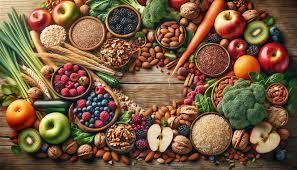
What is Positive Change Veganism? Positive change veganism is not just about what you eat; it's a holistic approach to living that aims to make a positive impact on the world. It goes beyond avoiding animal products and focuses on promoting sustainability, compassion, and social justice. By choosing to live a vegan lifestyle, individuals can reduce their carbon footprint, support ethical treatment of animals, and improve their own health.
How Does Positive Change Veganism Make a Difference? Positive change veganism has the power to create a ripple effect of positive change in the world. By reducing the demand for animal products, vegans can help lessen the environmental impact of factory farming, which is a leading cause of deforestation, water pollution, and greenhouse gas emissions. Additionally, choosing plant-based foods can help alleviate world hunger by using resources more efficiently and ethically.
Benefits of Positive Change Veganism:
Improved health: A plant-based diet has been shown to lower the risk of many chronic diseases, including heart disease, diabetes, and cancer.
Environmental preservation: By reducing our reliance on animal agriculture, we can help protect the planet for future generations.
Animal welfare: Choosing not to support industries that exploit animals can help reduce suffering and promote compassion.
Social justice: Many communities around the world are disproportionately affected by the negative impacts of animal agriculture, such as pollution and food insecurity. Positive change veganism can help address these injustices.
How Can Individuals Embrace Positive Change Veganism? Making the switch to a vegan lifestyle doesn't have to be daunting. There are many resources available to help individuals transition to a plant-based diet, including cookbooks, meal plans, and online support groups. By starting with small changes and gradually incorporating more plant-based foods into your diet, you can make a positive impact on your health and the world around you.
Conclusion: Positive change veganism is not just a trend; it's a movement that is gaining momentum around the world. By choosing to live a vegan lifestyle, individuals can make a positive impact on their health, the environment, and animal welfare. Whether you're motivated by health, ethics, or environmental concerns, embracing positive change veganism is a powerful way to contribute to a better world for all. Start today and join the growing community of compassionate and conscious consumers who are making a difference one meal at a time.
Meta Description: Discover the power of positive change veganism and how it can make a difference for your health, the environment, and animal welfare. Join the movement for a better world today! By following the guidelines above, we can create a compelling and informative article that showcases the benefits and importance of positive change veganism while engaging readers and encouraging them to take action. Let's continue to spread the message of positive change veganism and inspire others to make a difference in their lives and the world around them.
Website: https://cruelty.farm/
https://seogoogle99.blogspot.com/2024/04/biodiversity-and-veganism.html
https://penzu.com/p/d48c1f2e4e976ae0
#Positive Change Veganism#Plant-Based Success Stories#Debunking Vegan Myths#Vegan Support Network#Traveling as a Vegan#Quick Vegan Meals#Vegan Dining Out Tips#Vegan Pantry Essentials#Plant-Based Meal Planning
2 notes
·
View notes
Text
Recipes for Dove (and others, too)

This is a small selection of recipes that I put together for @dove-da-birb. They are some of the recipes that I and my family use, mainly vegetarian, but also with a few non-vegetarian options. I tend to adapt these a bit when I make them, usually adding more of the seasonings and aromatics, but the recipes are a good basis to build off of.
The recipes are from The Ultimate Vegetarian Cookbook, The Paleo Diabetes Diet Solution, and a couple websites (which I've linked).
Recipe Websites I Often Use
The 1940s Experiment - A website containing a variety of recipes from 1940s Wartime Britain. They can be a little hit-or-miss, but I linked a few of my favourites below. They're definitely rather British in nature, so may or may not appeal. Many of the recipes are wither vegetarian, or have a vegetarian option.
Just One Cookbook - A HUGE collection of Japanese recipes, from mains, to sides, to desserts, to a whole lot of other dishes. There are a lot of recipes that I've enjoyed from here!
Sides and Starches
Tattie Scones (Tippitiwychett) - I LOVE this recipe. It's just a really good starch to have with a meal!
Mock Black Pudding (The 1940s Experiement) - One of the many "mock" foods of the era, this is a fried, seasoned oat patty. It's nice with either veggies and a protein for dinner, or with eggs and tomatoes for a savoury breakfast.
Lemon Garlic Pasta (Pinch and Swirl) - Just a nice, simple pasta recipe. I generally add some spinach towards the end of the cooking process to wilt a little, and it's also really tasty if made (significantly) spicier. Roasting the garlic beforehand also adds another layer of richness to the dish, but it's not necessary.
Mains (Vegetarian)
Mushroom risotto (Recipe Tin Eats) - I posted about this the other day, but it's a really rather nice recipe if you enjoy risotto and/or mushrooms :)
Mock Goose (the 1940s Experiment) - Not goose, but a baked lentil dish! It's surprisingly nice, especially topped with cheese in the last few minutes of baking.
Mock Crab (The 1940s Experiment) - Again, not crab, but a cheesy scrambled egg dish. It's nice on toast as a quick lunch, with some fresh veg as a side. I would definitely recommend using less margarine/butter, as it can get a bit too oily otherwise.
Masoor Dahl (Choosing Chia) - This is an alright basis for this recipe, but I usually add about double the amount of seasoning (if not more). It's a quick recipe, though, so it's nice in that way.
Tofu Katsu Curry (Okonomi Kitchen) - I'm a HUGE fan of curries, especially Japanese curries. This recipe, with breaded tofu cutlets, is a nice recipe, and I often use it. I usually just make triangles, rather than the "cutlet" shape suggested on the website, and I also make "family style" curry (as in this recipe). (Also, Okonomi Kitchen is another website with a lot of good vegetarian/vegan dishes!)
Curried Squash Soup - I don't remember what this exact recipe is like, but you can alter the seasoning to suit your tastes ^w^ (Using frozen, cubed squash is a really good option here!)

Vegetarian Bolognese - You can use canned beans instead of dried, and though they won't have the bay leaf flavouring, it's a quicker way to make this sauce. I'd also recommend adding some heat, either with pepper flakes, fresh hot peppers, or canned chipotles.
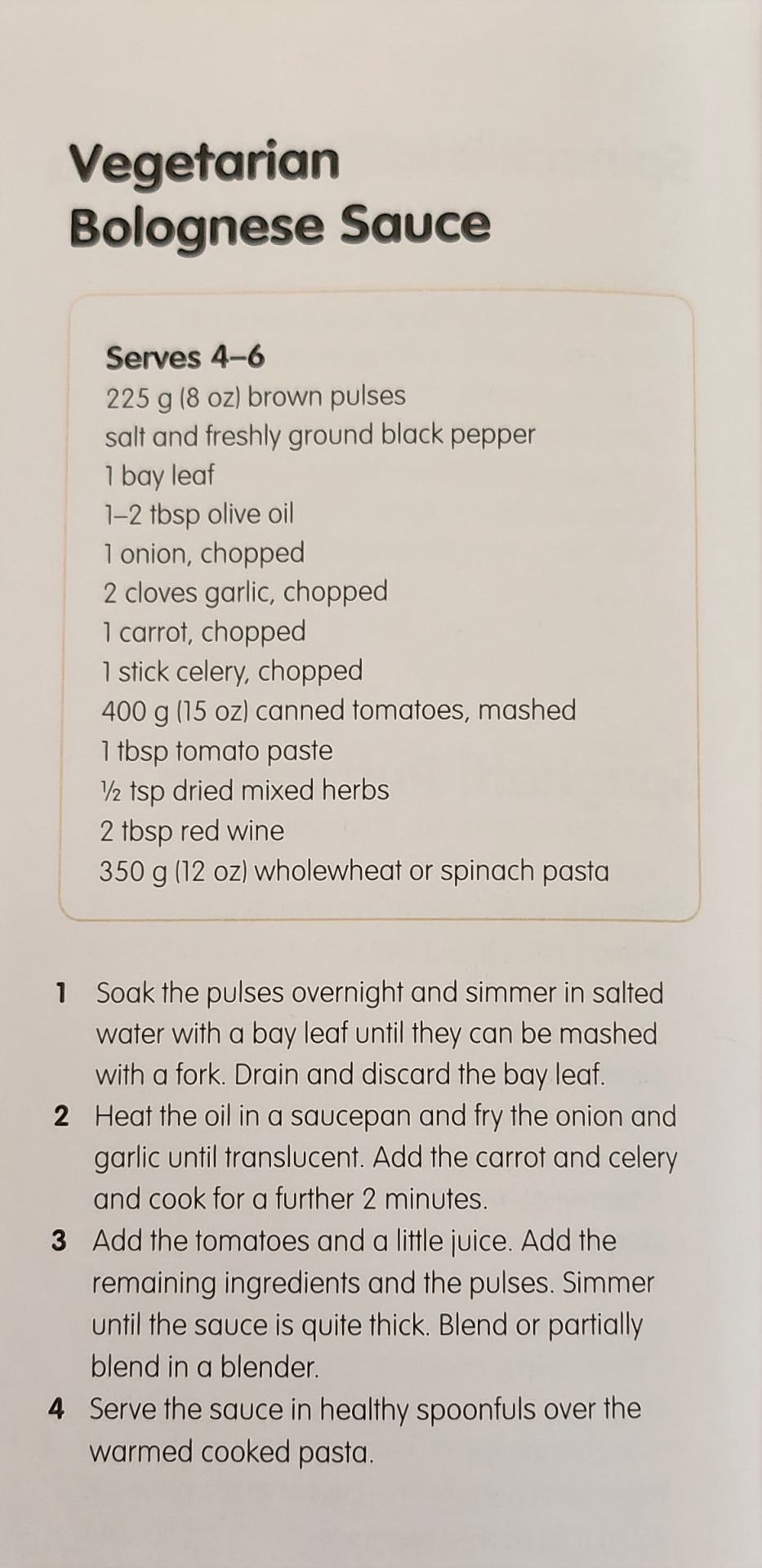
Roasted Ratatouille - You can of course just use normal diced tomatoes for this. It won't have the same smokiness, but it's still just as good!
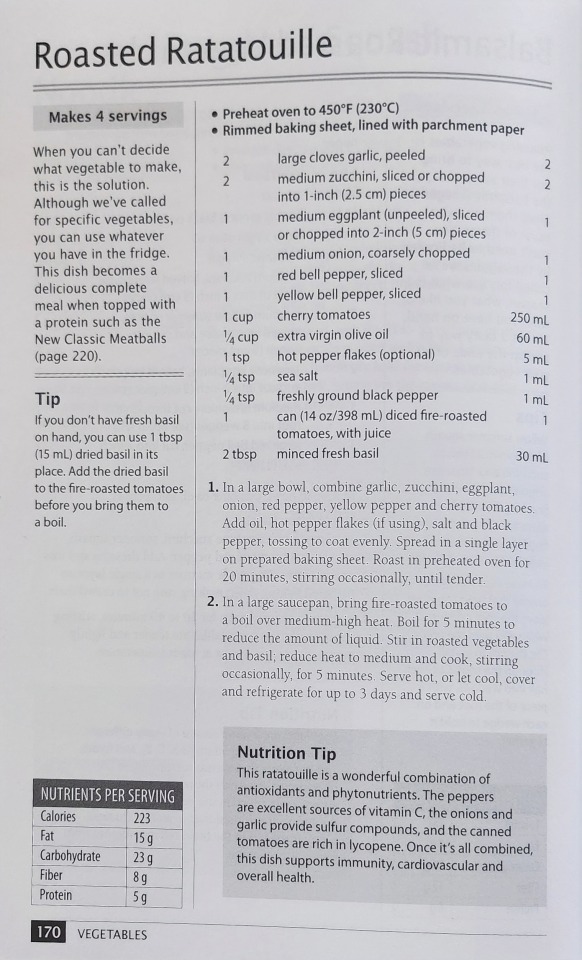
Mains (non-Vegetarian)
Greek-Style Turkey Burgers - My family makes these into meatballs, usually. They also need more seasoning than is called for in the recipe, by quite a bit. (Mint is also a nice addition to these!)
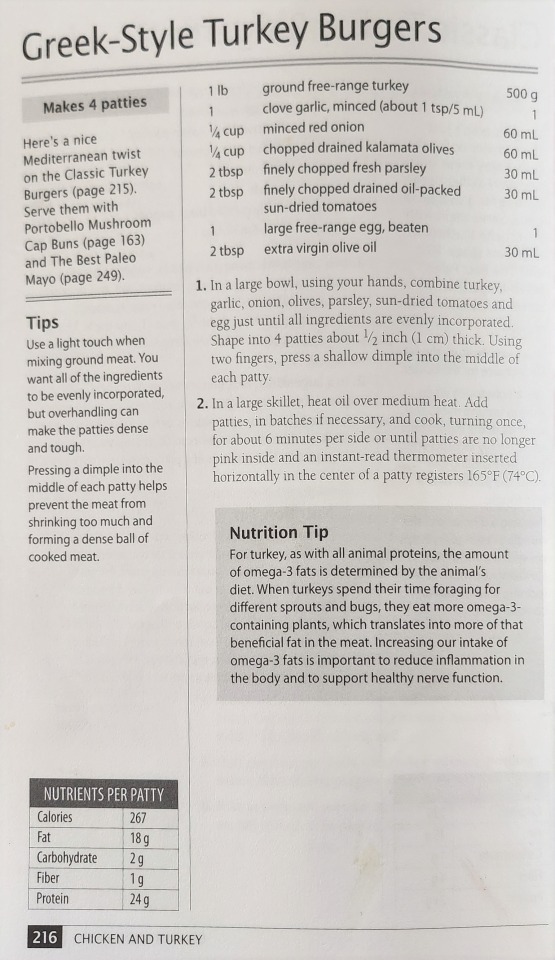
Baked Haddock with Peppers and Tomatoes - This recipe is more me just putting the concept in this collection, of white fish baked in a chunky tomato sauce. It's always just a nice, simple meal to have, especially with some rice or wild rice.
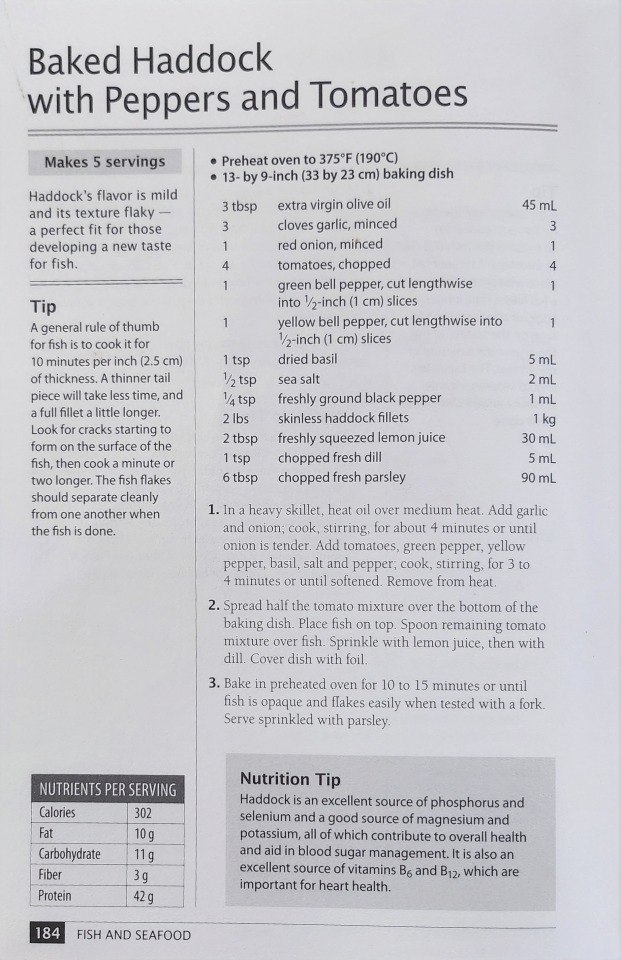
#krenenbaker's :)#this took longer to put together than I thought - I had to remember where some of the recipes were from haha!#and a couple of my favourite cookbooks are still in storage so I may add onto this when I have them out again#recipes#meals
7 notes
·
View notes
Text

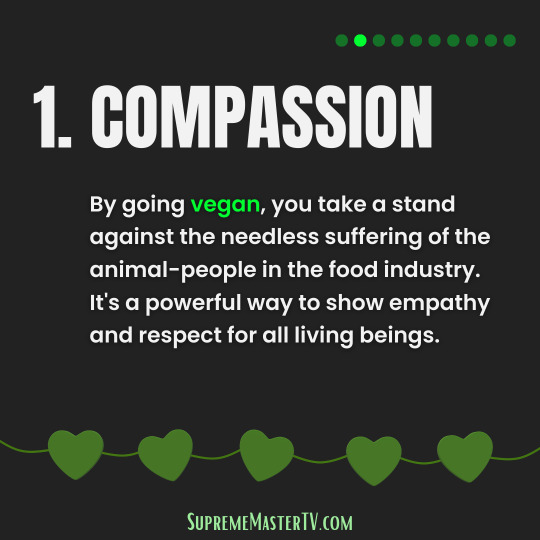
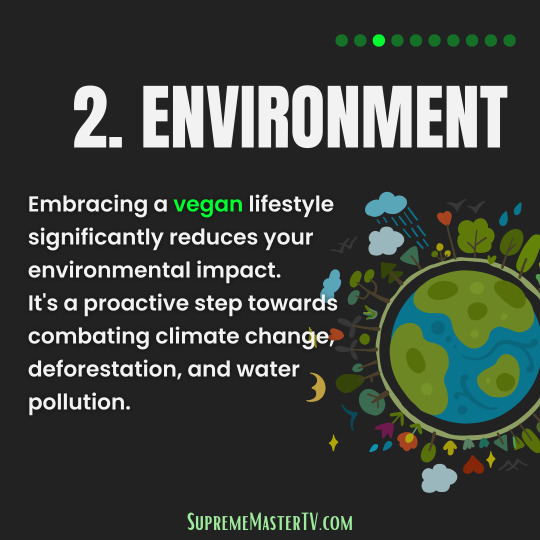
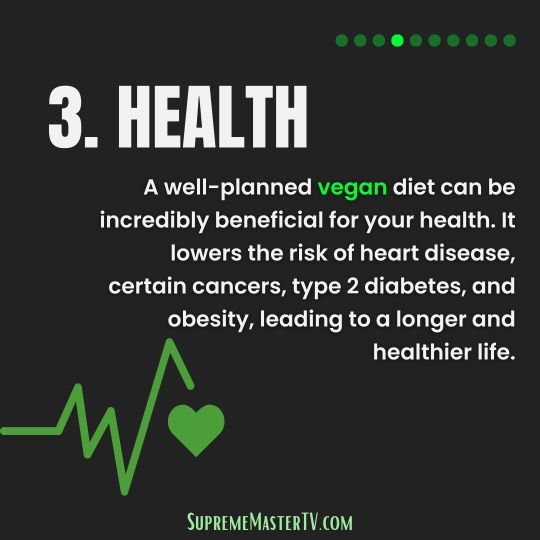
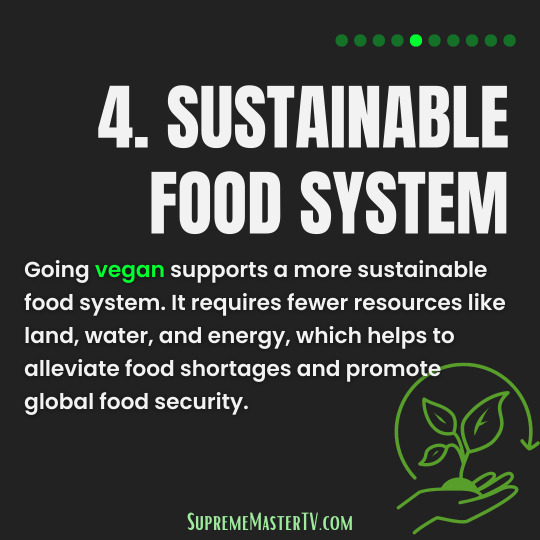

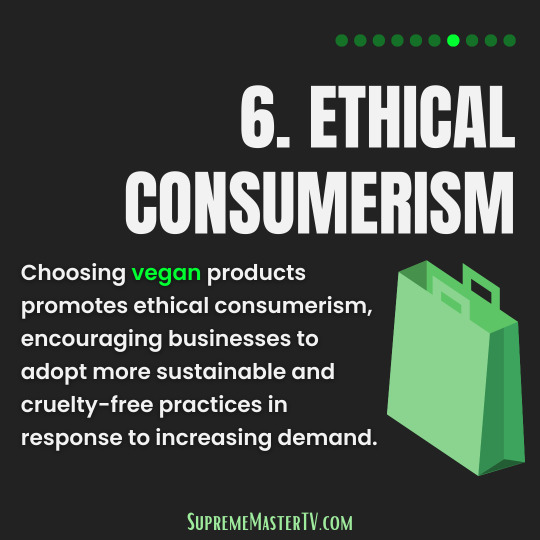
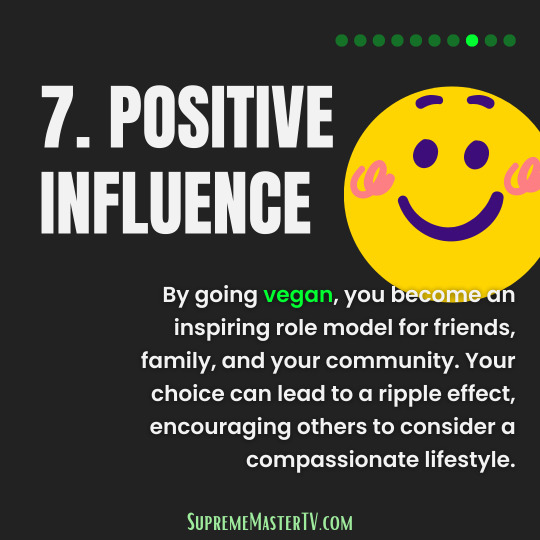

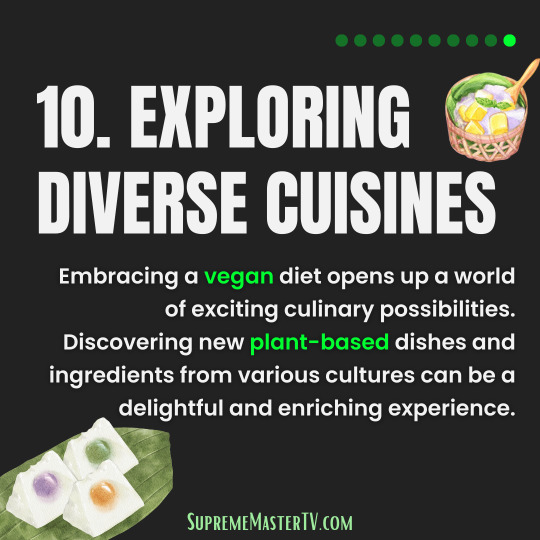
Top 10 Reasons to Go Vegan:
Compassion for animal-people: By going vegan, you take a stand against the needless suffering of the animal-people in the food industry. It's a powerful way to show empathy and respect for all living beings.
Protecting the environment: Embracing a vegan lifestyle significantly reduces your environmental impact. It's a proactive step towards combating climate change, deforestation, and water pollution.
Improved personal health: A well-planned vegan diet can be incredibly beneficial for your health. It lowers the risk of heart disease, certain cancers, type 2 diabetes, and obesity, leading to a longer and healthier life.
Sustainable food system: Going vegan supports a more sustainable food system. It requires fewer resources like land, water, and energy, which helps to alleviate food shortages and promote global food security.
Enhanced energy and vitality: Many vegans report feeling more energetic and rejuvenated after adopting a plant-based diet, which positively impacts productivity and overall well-being.
Ethical consumerism: Choosing vegan products promotes ethical consumerism, encouraging businesses to adopt more sustainable and cruelty-free practices in response to increasing demand.
Positively influencing others: By going vegan, you become an inspiring role model for friends, family, and your community. Your choice can lead to a ripple effect, encouraging others to consider a compassionate lifestyle.
Supporting biodiversity: The vegan lifestyle plays a role in preserving biodiversity and protecting endangered species by reducing habitat destruction and land use for animal agriculture.
Mitigating antibiotic resistance: By avoiding animal products, you contribute to the fight against antibiotic resistance, which is a growing public health concern worldwide.
Exploring diverse cuisines: Embracing a vegan diet opens up a world of exciting culinary possibilities. Discovering new plant-based dishes and ingredients from various cultures can be a delightful and enriching experience.
Overall, going vegan is a powerful and positive choice that benefits the animal-people, the planet, and your health. It empowers you to make a difference and contribute to creating a more compassionate, sustainable, and harmonious world for everyone.
🌿 Be Vegan, Make Peace 🕊 Do Good Deeds 💗
SupremeMasterTV.com
#SupremeMasterTV#PlantBasedLiving#VeganLifestyle#CrueltyFree#Top10#VeganCommunity#VeganForTheAnimals#GoVegan#VeganAwareness#VeganInspiration#VeganActivism#VeganSupport#VeganGains
7 notes
·
View notes
Text
Peanuts: A nutrient-rich and versatile snack with many health benefits
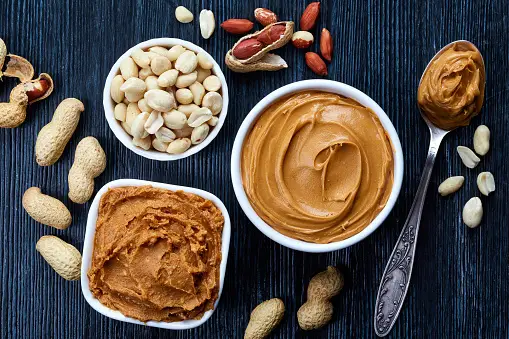
Peanuts are a type of legume that is native to South America. They are one of the most popular snack foods in the world, and for good reason. Peanuts are packed with nutrients and have been linked to a number of health benefits.
**Nutritional value of peanuts:**
Peanuts are a good source of:
* Protein: Peanuts are a good plant-based source of protein, making them a good choice for vegetarians and vegans. One ounce of peanuts contains approximately 6 grams of protein.
* Healthy fats: Peanuts contain mostly monounsaturated and polyunsaturated fats, which are good for heart health. Monounsaturated fats can help to lower LDL (bad) cholesterol levels and raise HDL (good) cholesterol levels. Polyunsaturated fats can also help to lower LDL cholesterol levels.
* Fiber: Peanuts are a good source of fiber, which can help to keep you feeling full and satisfied. Fiber can also help to improve digestion and regularity. One ounce of peanuts contains approximately 3 grams of fiber.
* Vitamins and minerals: Peanuts contain a variety of vitamins and minerals, including vitamin E, magnesium, potassium, and niacin. Vitamin E is an antioxidant that can help to protect cells from damage. Magnesium is important for muscle and nerve function. Potassium is important for blood pressure regulation. Niacin is important for energy metabolism and skin health.
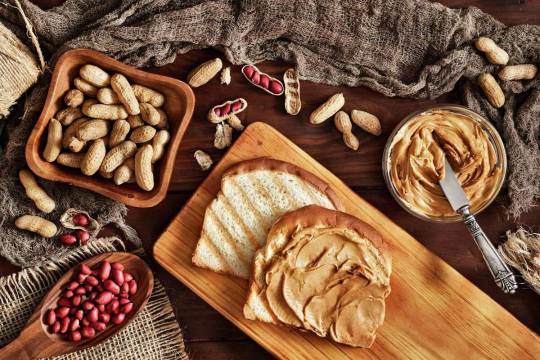
**Health benefits of peanuts:**
Peanuts have been linked to a number of health benefits, including:
* Reduced risk of heart disease: The healthy fats and antioxidants in peanuts can help to lower cholesterol levels and improve blood vessel health. A study published in the journal *Circulation* found that people who ate peanuts or peanut butter at least five times per week had a 14% lower risk of death from heart disease than those who did not eat peanuts or peanut butter.
* Improved blood sugar control: Peanuts have a low glycemic index, meaning they do not cause a rapid spike in blood sugar levels. This makes them a good snack option for people with diabetes or prediabetes. A study published in the journal *Diabetes Care* found that people with type 2 diabetes who ate peanuts or peanut butter as part of a healthy diet had lower blood sugar levels and less insulin resistance than those who did not eat peanuts or peanut butter.
* Weight management: Peanuts are high in protein and fiber, both of which can help you to feel full and satisfied. This can lead to reduced calorie intake and weight loss over time. A study published in the journal *Obesity* found that people who ate peanuts or peanut butter as part of a low-calorie diet lost more weight and body fat than those who did not eat peanuts or peanut butter.
* Cancer prevention: Some research suggests that peanuts may help to protect against certain types of cancer, such as colon cancer and breast cancer. A study published in the journal *Cancer Epidemiology, Biomarkers & Prevention* found that people who ate peanuts or peanut butter at least twice per week had a 27% lower risk of developing colon cancer than those who did not eat peanuts or peanut butter. A study published in the journal *Breast Cancer Research and Treatment* found that women who ate peanuts or peanut butter at least five times per week had a 22% lower risk of developing breast cancer than those who did not eat peanuts or peanut butter.
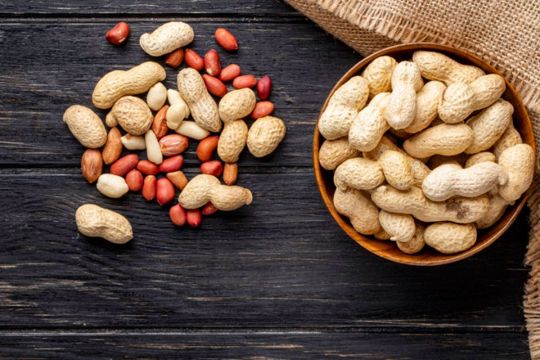
**How to incorporate peanuts into your diet:**
Peanuts can be eaten raw, roasted, or salted. They can also be used to make peanut butter, peanut oil, and other peanut products. Peanuts can be incorporated into a variety of dishes, including salads, soups, stews, and stir-fries.
Here are some tips for incorporating peanuts into your diet:
* Add a handful of peanuts to your breakfast cereal, oatmeal, or yogurt.
* Spread peanut butter on whole-wheat bread or crackers for a healthy snack or sandwich.
* Add peanuts to salads, soups, stews, and stir-fries.
* Snack on peanuts instead of unhealthy snacks like chips or candy.
* Make your own peanut butter at home using raw peanuts and a blender.
**Conclusion:**
Peanuts are a nutritious and versatile snack food with many health benefits. They are a good source of protein, healthy fats, fiber, and vitamins and minerals. Peanuts have been linked to a number of health benefits, including reduced risk of heart disease, improved blood sugar control, weight management, and cancer prevention. Peanuts can be easily incorporated into a variety of dishes, making them a healthy and convenient food choice for everyone.
#healthy#health#help#healthcare#headlines today news#headline news#self healing#heartbreak#healthy diet#business news#breaking news#blog#latest news#natural remedy#nutritious#world news#nature#news#money#beautiful#beauty#low cal diet#weight loss diet#life#love#long reads#liveblogging#literature#journal#gorgeous
3 notes
·
View notes
Text
Alkaline Vegan Healing Guide PDF FREE, Read Online | Dr Sebi
Dr. Sebi's Alkaline Vegan Healing Guide is a plant-based diet that focuses on consuming alkaline foods to restore the body's natural pH balance and promote healing. The diet is based on the belief that disease is caused by an acidic environment in the body, and that eating alkaline foods can help to neutralize this acidity and create an environment in which the body can heal itself. Here's Alkaline Vegan Healing Guide Book PDF Download Free. A Most Popular read book by Dr Sebi.

The diet consists of a variety of fruits, vegetables, herbs, and spices, all of which are alkaline-forming. Alkaline foods are rich in minerals and antioxidants, which are essential for good health. Dr. Sebi also recommends using certain herbs and supplements to help with detoxification and healing.
Dr. Sebi's Alkaline Vegan Healing Guide has been used by many people to improve their health and heal from a variety of chronic diseases, including cancer, diabetes, heart disease, and autoimmune disorders. The diet is also said to be effective for weight loss, improved energy levels, and overall better health.
Dr. Sebi’s diet is a plant-based alkaline diet. It helps rejuvenate cells in your body by getting rid of toxic waste. The bulk of this diet consists of an approved shortlist of foods along with supplements. Dr. Sebi’s diet also helps in lupus, AIDS, kidney disease, and others. Treatments for these diseases require you only to eat certain grains, fruits, and vegetables, strictly refraining from animal products.
The goal of this two-book bundle is simple: teach yourself how to follow Dr. Sebi’s diet and keep at bay and have a healthy life.
Among the main topics of this book, you will find:
What Dr. Sebi’s Alkaline Diet Is and How It Works, Dr. Sebi’s Approved Supplements, Food List, And Herbs, A 7-Day Full-Body Plan To Detox the liver and other vital organs, How To Cleanse Your Body And Improve Your Health, The Most Effective Treatments and Cures for lupus, hair loss, asthma, and other health issues without depending on any western treatment and lot more.
Alkaline Vegan Healing Guide Book - PDF
The 9 Most Potent Medical Herbs To Cure Herpes In 7 Days without spending a fortune in traditional medicines
Here are some of the key principles of Dr. Sebi's Alkaline Vegan Healing Guide:
Eat plenty of fruits, vegetables, herbs, and spices.
Avoid acidic foods, such as meat, dairy, processed foods, and sugary drinks.
Drink plenty of alkaline water.
Use certain herbs and supplements to help with detoxification and healing.
If you are considering following Dr. Sebi's Alkaline Vegan Healing Guide, it is important to talk to your doctor first, especially if you have any underlying health conditions.
So, Follow this Dr Sebi's Vegan Diet Routine and Restore your Body's Ability and Achieve long and healthy life
5 notes
·
View notes
Photo
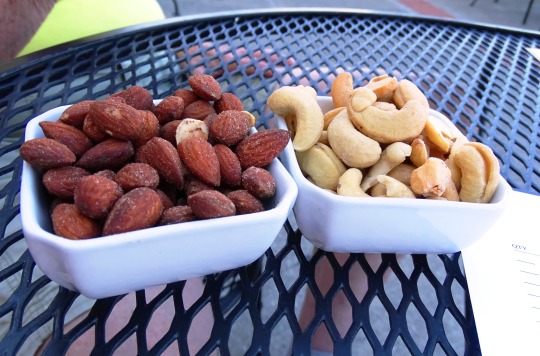


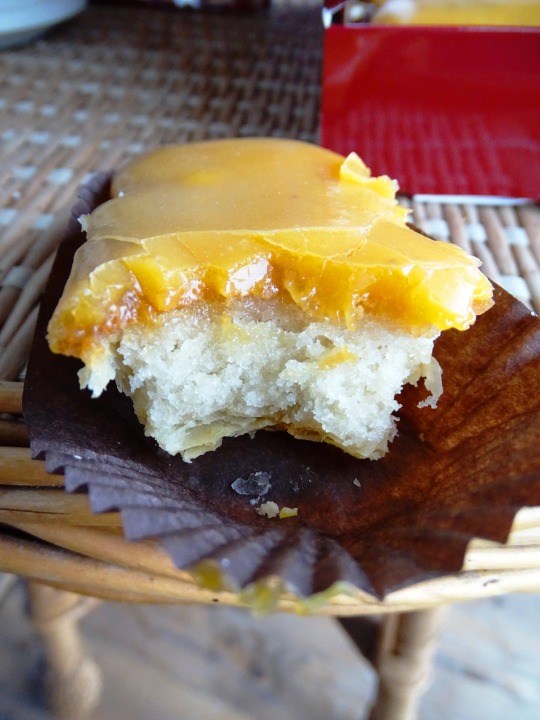




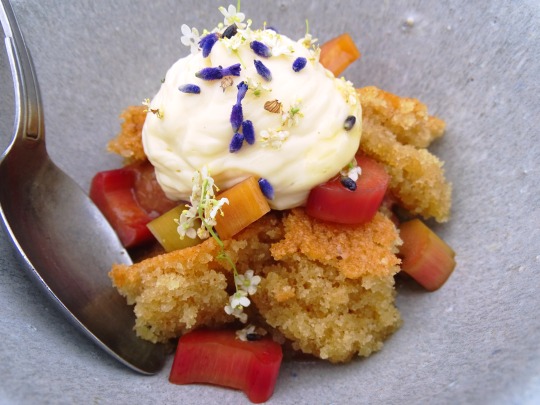

National Almond Day
Almonds, a bite-sized little nut common in trail mix and other breakfast and snack recipes. More likely than not, you’ve tried an almond before. But, did you know there is an entire day devoted to the celebration of almonds?! National Almond Day is a reason for foodies to celebrate!
It’s generally believed and agreed by historians (and food historians in particular) that almonds were one of the earliest cultivated foods by mankind. Almonds are mentioned as far back in history as the Bible! Although their first place of origin is debated, almonds were thought to have first been cultivated in China and Central Asia.
While traveling the Silk Road between Asia and the Mediterranean, explorers were said to snack on almonds during the long travel times. As explorers settled in the Mediterranean region, the trees began to grow in the area. As the trees spread throughout Europe, many of them clustered in Spain and Italy.
Almonds eventually made their journey to the United States in the mid-1700s. Historians believe they made their appearance on the trade ship brought to the US from Spain by the Franciscan Padres. The trees died out in the United States quite quickly as the soil and cultivation knowledge to keep the trees alive was inadequate. It was not until the 1800’s that almond trees were successfully grown and harvested in the States. By the end of the 1800s, the Sacramento and San Joaquin areas of California became the United State’s biggest almond producers.
Today, almonds symbolize a variety of things. The Bible tells the story of the rod that blossomed and bore almonds, making them a divine religious symbol. The early Romans gifted almonds to family and friends as fertility charms. These gifts were typically given at weddings. Today, sugared or frosted almonds are often given at American weddings to guests as a sign of happiness, wealth, and good fortune.
Health Benefits of Almonds
If you are still on the fence about enjoying almonds, you’ll be pleased to know they have a wide variety of health benefits. Almonds are high in fiber, which means they promote digestion and can give you extra good gut bacteria. Almonds, outside of their edible form, are great for your skin. If you suffer from dry, flaky, or irritated skin, you can apply almond oil or almond lotions to hydrate your skin and give you a dose of vitamin A.
If your hair needs a little bit of shine, consider adding an almond-based shampoo or conditioner. Almonds have also been studied for their benefits in lowering your risk of heart disease! If you are dieting, this little nut can help to provide you with a quick snack to curb cravings, as it is high in plant proteins.
The nutrients in almonds have also been proven to help lower blood pressure and your risk for diabetes! They are also known for their high vitamin E content, their effectiveness at reducing cholesterol levels, and helping with weight loss, as well as being a vegan and lactose food alternative.
History of National Almond Day
While the origins of National Almond Day aren’t clear, today is the day to go nuts! The day even has its website! According to the site, this day celebrates food that is “Good for your heart. Good for your waistline. Good for your skin. What can’t almonds do?” The site also mentions that “it’s no wonder this ultimate superfood has its very own day of honor.” The site provides a variety of resources for almond lovers, from recipes, health studies, to a background on the development and harvesting of almonds.
How to Celebrate National Almond Day
National Almond Day celebrates all things almond, and rightly so, given their benefits! There are a variety of ways to celebrate almond day. If you want an easy way to celebrate, consider purchasing a pack of almonds and enjoying them as a snack! Almonds come in a variety of different flavor options, so if you’re tired of plain almonds, consider trying a new flavor! Try out some smoked, honey roasted, sriracha, jalapeno, ranch, or barbecue flavored almonds to switch it up!
If you aren’t a fan of eating almonds, try celebrating almonds in their other forms. Consider treating yourself and your body to an almond-based lotion, shampoo, or perfume!
Are you looking to spread the almond love to those around you? Consider baking a dinner or dessert using almonds. You can serve this for your family dinner or take it to a friend or loved one to enjoy. You can coat almonds in sugar, sesame seeds, or spices and bake them to create a simple and flavorful snack. For dinner, consider cooking green beans or other vegetables topped with herbs and sliced almonds! Looking to spice up your meat dish at dinner?
Consider coating your chicken, pork, or salmon in almond flour or chopped almond coating for a kick of flavor and crunch. For dessert, make almond marzipan or almond flour cake! Got a family member who is vegan or allergic to lactose? Drink almond milk or research wonderful vegan recipes using almonds instead of animal products!
Whether you enjoy eating plain almonds or not, these little nuts can be prepared wonderfully for any palette. From desserts to hearty dinners, to little snacks, to body products, the ways to celebrate almonds are infinite!
Source
#salted almonds#cashew#sparkling wine#wine tasting#Domaine Carneros#Napa Valley#original photography#snack#travel#vacation#California#Carbayones#bakery#Spain#food#dessert#Sweden#Tartas Ancano#madeleine#Lindt Pralines Connaisseurs#Lindt & Sprüngli#Swiss chocolate is the best#I only eat Swiss chocolate#Frey Chocolate#National Almond Day#NationalAlmondDay#16 February
3 notes
·
View notes
Text
"hey, I have a Boundary about what I put in my body." Some people take it as SUCH a personal affront. it's really not and at least for kosher, it's really not that hard to accommodate!
Beyond the antisemitism (explicit and implicit), the smugness, the general assholery required to think that someone else's dietary needs are Just Not That Important in the face of Making Literally The Tiniest Effort, I think a huge part of this is cultural normativism where people assume what their diet (or that of their family) is The True Normal Diet. Everyone else - kosher, halal, vegan, vegetarian, gluten-free, diabetic, allergies, dairy intolerance, whatever - is The Weirdo Who Shan't Be Accommodated. to prove a point or something, that the One True Diet is superior and if the Weirdo simply tried it they'd see The Light! Our own foodway is the one true foodway and all others are deviants that must be corrected!
I'm a Jewish vegetarian, so I'm rocking on two deviant foodways relevant to my other culture context of the United States (especially in the deep south)*. I would 100% rather be told it's not in the cards for me to eat at whatever event than be lied to or someone try and trick or pressure me. No, I don't give a damn how good bacon is - I've never had it and have no intention of trying it. Do you like weird 50s jello dishes or vegemite or rabbit or Rocky Mountain oysters or maggot cheese or crickets or processed rotted shark? Do you have any burning desire to eat these things? In particular cultural contexts, any one or maybe a couple of those things are perfectly normal things to eat, while in others they are not. Some cultures, religions, and foodways allow for coffee and/or alcohol, others do not. The foodways in which those are acceptable, perhaps even desirable foods to consume are no more deviant than one's own that does not embrace them.
The same goes for kosher.
So let's say you don't want to be a jerk about kosher (largely applies to other dietary restrictions). Here are 8 easy ideas.
You can think something is silly or whatever without actually choosing to act upon your opinion. Like literally just don't tell people their dietary choices are dumb or try and convince them out of it. Relatedly, as OP explained, don't make "jokes" or commit food tampering. very basic don't be a jerk behavior, really.
literally just ask for dietary restrictions when you invite people over or plan an outing. if you're organizing an event with RSVPs have a line or a question for folks to include that info.
if someone says they're kosher or kosher-style you can ask what that means for them. or what they can/can't eat.
look up heckshers (the little stamp that shows a product is kosher) so you recognize a couple of common ones. Local mileage may vary, but here are some common ones. In my experience, in the US generally the o with the u inside or KSA or kaf-K (the Hebrew letter around the K). Scroll down for reference.
literally google "is [food] kosher" when you go to buy it with the hope a kosher friend will eat it.
Have a vegetarian option! It won't cover everyone, but a vegetarian or vegan option will cover a huge swath of kosher people.
If it's absolutely not in the cards to have a sufficiently kosher option, let the person know as soon as possible.
Labels! If you can list ingredients for a Thing, people can make informed decisions.

*FWIW, organizers here in the Deep South have actually generally been better about trying and/or saying they just can't instead of smugly insisting they know better. Northern culturally-Christians atheists have been to worst about this to me personally - Southerners have generally taken the CHALLENGE MODE ACCEPTED mode.
I wish I'd made it clearer when I make this post but shit like that is super common.
Every Jew has had someone "joke"/threaten/say they were gonna sneak pork into our food. Every single Jewish person, who keeps Kosher or not has had someone say something about giving us bacon or whatever without us knowing
I've had people passive aggressively ask if I wanted any bacon or ham and literally wave it at me while speaking.
I can't count the number of times that the first question out of someone's mouth when they learn I am Jewish is "but do you eat bacon" "have you ever tried bacon?" "what about ham?" "do you want to try bacon?(as in right now this very minute 30 seconds into knowing me)"
Countless Jews have spoken to the person in charge of an event, weeks or even months in advance about their Kosher needs, been assured up down and sideways that those needs will be met to show up and find no Kosher option.
and finally SO! many Jews do indeed have a story of being tricked into eating something not Kosher, and most commonly something pork related.
like this is one of the most common antisemitic micro (and not so micro) aggressions Jews face and is one of the reasons lots of Jews don't keep Kosher, they can't trust even (so-called) friends to have even baseline respect or to learn anything about Kosher.
29K notes
·
View notes